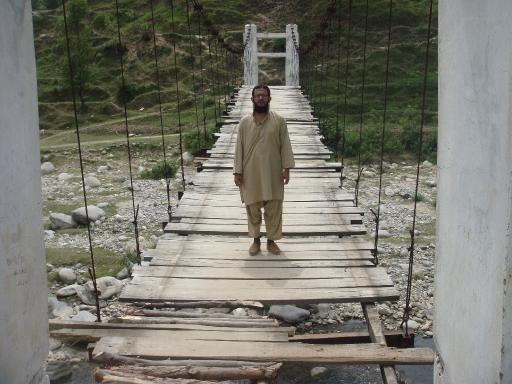
Recently Rated:
Stats
Blogs: 1
images: 5
Location:
Work interests:
Affiliation/website:
Preferred contact method: Reply to post in blog/forum/group
Preferred contact language(s):
Contact:
Favourite publications:
Work interests:
Affiliation/website:
Preferred contact method: Reply to post in blog/forum/group
Preferred contact language(s):
Contact:
Favourite publications:
Founding Member
Location: Palmerston North, New Zealand
Work: Disaster Risk Reduction, vulnerable people, disaster risk governance, sustainable development
Biographical: PhD Candidate Development Studies Programme School of People, Environment & Planning Massey University, Private Bag 11 222 Palmerston North, NEW ZEALAND Email: a.r.cheema@massey.ac.nz http://disasters.massey.ac.nz/team.htm
Favourite Publications: Disaster Prevention and Management Development in Practice Journal of International Development The Journal of Development Studies Governance Natural Hazards
Work: Disaster Risk Reduction, vulnerable people, disaster risk governance, sustainable development
Biographical: PhD Candidate Development Studies Programme School of People, Environment & Planning Massey University, Private Bag 11 222 Palmerston North, NEW ZEALAND Email: a.r.cheema@massey.ac.nz http://disasters.massey.ac.nz/team.htm
Favourite Publications: Disaster Prevention and Management Development in Practice Journal of International Development The Journal of Development Studies Governance Natural Hazards
My Article - No Lessons learnt - comments welcome
AoA/ Hi All
This is just to share a piece of my writing appearing in Sunday's Dawn (Pakistan's English daily newspaper, 2nd January 2011) relating to disaster risk governance issues in Pakistan.
Your comments and feedback is welcome.
With best regards
Abdur Rehman Cheema
( Below is the response of Mr Peter copied here by me from elsewhere to keep the discussionconsistent at one place)

Dear Abdur,
Here is a link to the official government website responsible for imparting information about the floods now happening in Queensland.
http://www.qld.gov.au/floods/
This might be a good starting point for making a comparison, if this is something you would like to look at. Queensland is a wealthy state in a wealthy county, but it can still make mistakes, even if it does some things better.
Thanks Peter for your comments and encouragement.
Well, I think there are expert people in disaster related government organisations but not enough to constitute a critical mass. Secondly, political priorities andcrony-ism have often taken precedence over merit and transparency in public sector appointments in Pakistan. Consequently, even the small number of skilled and capable persons hardly get anopportunityto call shots in public sector organisations including disaster related organisations. Most often, the serving and retired military bureaucracy has been awarded the top positions of government organisations such as Earthquake Reconstruction and Rehabilitation Authority and National Disaster Management Authority.
Similar is the situation where several disaster management organisations work in parallel and often with conflict of interest. Thegovernment, despite being aware of this malfunctioning of institutions, finds itself in a predicament. On the whole, I would imagine a strong political will to take up independent suggestions to steer the country towards a safer future for its people.
Yes, a good analysis of how different institutions in Pakistan are supposed to work and how they practically work. The govt. need to think seriously in relation to getting rid of ad hocracy, as it always acts at the eleventh hour to crate new institutions rather than strengthening the existing ones. In relation to Peter's query regarding expert staff, I will say yes in some institutions there are but not in all. One of the solutions could be to appoint qualified and potentially capable people on relevant govt. positions.
[Comment by Peter Matthews, moved from forum to present page]
Dear Abdur,
Your article is excellent, as an introduction to problems in disaster management in Pakistan, or any country I suspect. For comparison, you might like to look at how well or how badly Queensland (Australia) is now dealing with a similar (or perhaps larger) scale of flooding, but in a much less complex social environment. I hope your article will have a sequel.
Since I work at an anthropological museum, I will ask an anthropological question... do any of the institutions you mention have a visible core of expert staff, or 'critical mass' in terms of relevant human skills and interests? Perhaps the picture is mixed, with some offices having active, sincere, and skilled staff, and others not. The question then is how to unite the people with real skills into an effective civil emergency network. Or, if there are are clear differences in the skills and culture of the different organisations, can the differences be made more explicit, in order to avoid the confusion of responsibilities, even if the overall mandate is the same?
Best regards, P.